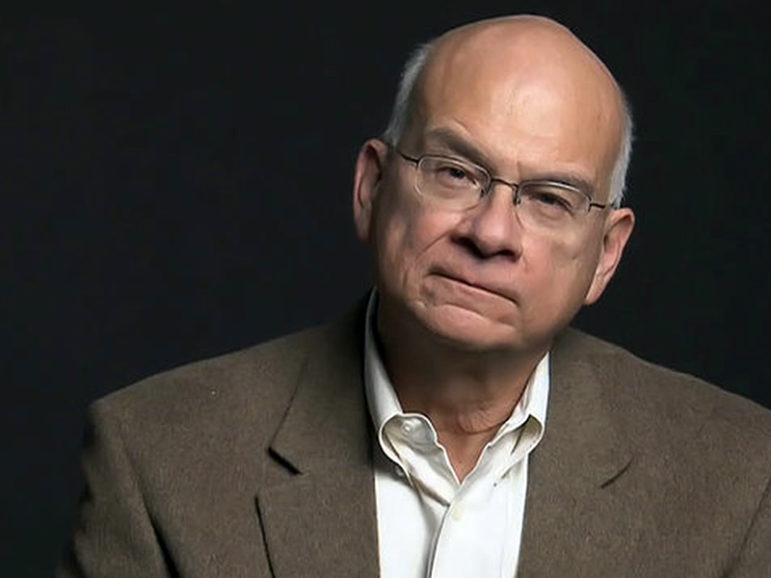If you’re a conservative evangelical Christian who feels called to ministry, you’re welcome to attend Princeton Theological Seminary. But you’re not worthy of honor there. That’s the message sent by PTS’ president, Craig Barnes, today.
In an email to faculty and students, Barnes announced he reversed his decision to honor Pastor Tim Keller with the annual Kuyper Prize for Excellence in Reformed Theology and Public Witness. Doing so, Barnes said, might “imply an endorsement” for Keller’s conservative views on women’s ordination and same-sex relationships.
RELATED: Princeton Theological Seminary reverses decision to honor Redeemer’s Tim Keller
I’m more progressive than Keller on these issues, but I disagree with PTS’ decision. The American church is grappling with issues of gender and sexuality right now, and some on both sides have decided to declare their foes anathema. We must learn to make space with Christians of mutual goodwill who disagree with us on secondary theological issues.
To be clear, PTS has the right to honor whomever they wish. They are not obligated to let Keller speak, much less grant him this award. Setting this aside, we must ask, “How does marginalizing Tim Keller make the world a better place?” And since we’re talking about a seminary, we might add, “How does it promote unity among disparate churches?” The answer to these questions is the same: It doesn’t.
I’ve had the pleasure of being with Tim Keller on two occasions. Each time, I recognized areas where his theology and mine did not align. But I also walked away feeling I had been in the presence of someone who was eminently reasonable, thoughtful, kind. Tim Keller is no extremist. He is no misogynist. He is no bigot. He is not hateful. Anyone who has paid attention to his Manhattan ministry can attest to this.
If Christians like Tim Keller are unworthy of honor and deserve to be marginalized, American Christianity is in serious trouble.
Keller is like the tens of millions of American Christians who hold to traditional interpretations of the Bible on these issues. Most of them do not hate gay people (though some do). Most do not believe women are inferior (though some do). They are doing their best to love their God and love their neighbors and live their lives according to what they believe the Bible teaches.
It’s important to recognize that Barnes’ decision not to grant Keller the award came in response to outcry from students and alumni. As PTS alum Rev. Traci Smith wrote on her blog:
“I’ll let others argue finer points of Rev. Keller’s theology. My personal soapbox is much less refined. It boils down to this: an institution designed to train men and women for ministry shouldn’t be awarding fancy prizes to someone who believes half the student body (or is it more than half?) has no business leading churches.”
I don’t know the makeup of the PTS student body or its views. Let’s assume that half of them disagree with Keller. What about the other half that holds to a traditional view of sexuality and gender? Should an institution designed to train men and women for ministry tell the conservative half (more than half?) of its student body that their theology makes them unworthy of honor?
I appreciate the work of PTS, and will even be speaking there this summer as part of the “Frederick Buechner Writing Workshop.” But I am dismayed by the message this sends to conservative Christians. Having grown up in a conservative Christian community, I’ve been familiar with this message. For years, I’ve watched evangelicals marginalize their progressive brothers and sisters over issues of gender and sexuality. They have made these matters a litmus test, withholding honor from any Jesus follower who dared to assert a more progressive stance. These conservatives have marginalized and maligned progressives, treating them with contempt.
At the same time, progressive Christians have pleaded with their evangelical brothers and sisters to make space at the table for them. They’ve argued for diversity of thought and theology on secondary issues like these. Conservatives often dismissed their pleas, drawing lines in the sand over issues of sexuality and gender.
As the cultural tides shift, the church is also transforming on these matters. As progressive Christians gain more cultural and religious influence, will they embody the Golden Rule and make space at the table for conservatives (as they once asked conservatives to do for them)? Or will they treat conservatives the way conservatives have treated them for years?
Though I wish it were not so, many will likely choose the latter. After all, conservatives haven’t cornered the market on fundamentalism.






